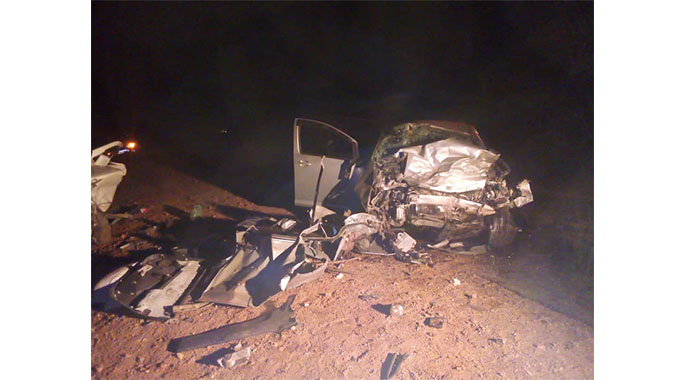Lives of patriotism, motivation

Stephen Mpofu, Perspective
“IT boggles the mind.”
Encoded in the sentence above is an intriguing question that has no doubt shaken the wonder-beleaguered minds of some if not most Zimbabwe watchers abroad for forty years: “How on earth do people who boast one of the highest literacy rating on the African continent fail so dismally to immortalise in black and white the freedom song shrilly rendered by their heroes and heroines crossing the Jordan on their journey from years of slavery by those without knees who had abducted their motherland.
First the observers realised and acknowledged that the liberators of this country demonstrated lives of unmitigated patriotism by taking up arms, abandoning the relative security of their homes, schools and in some cases jobs to cohabit with mosquitoes and snakes in the bushes at home and in foreign land in order to wage war against foreign occupiers of their native country.
Some of the fighters were eaten by lions while their colleagues scrambled up in trees to save their own lives while others were killed in ambushes by the enemy with dogs feasting on the corpses before these were recovered for burial by grief-stricken villagers, or were slaughtered in air raids in their foreign bases by the enemy.
But whether the weather be good, whether the weather be bad, the combatants never threw down their arms but fought the enemy on even more relentlessly.
Indeed, it was as though God had told them in their dreams while they stole sleep under those unfriendly bushes that He had decreed that no foreign oppressors would bring permanent stagnation upon the lives of the black people in this country or elsewhere in Africa.
Indeed, as if to prove that God’s mouth does not fall down, illegal economic sanctions introduced by a coalition of Western racists to try to amputate the arms and legs of the independence government of Zimbabwe in a bid to stop it from taking this country to greater heights of freedom and national development have failed to achieve the ultimate intended goal thanks to the partnership between the civilian masses and our defence forces, among them former freedom fighters, in protecting the security of our country in many critical areas.
But a huge question about the motivational benefits of the lives lost during the revolution and the ones that survive to this day remain a mystery in the minds of Zimbabwe observers, four decades into Uhuru, but with the launch of President Emmerson Mnangagwa’s biography, A LIFE OF SACRIFICE, providing an example of what should be done to fulfil the motivational role of the lives of those alive and gone who did so much to bring about freedom and self-determination or independence to our mineral-rich country.
Which reminds this writer of what a ruling Zanu-PF stalwart said recently: “a serious committee should be set up to write the liberation history of Zimbabwe.”
The political guru in question, who prefers anonymity in this discourse, noted that individuals who attempted to write the liberation history tended to fall into self-praise.
This communicologist recalls that the late President Cde Robert Mugabe once announced that the government would set up a committee to oversee the writing of a history of the liberation struggle.
This communicologist believes that a serious committee on Zimbabwe’s liberation history should include journalists among historians and other writers.
Journalists such as Dr Obert Mpofu the Zanu-PF Secretary of Administration boasts additional credentials as an author and a freedom fighter who went from the bush to high school to further his education while in exile and on to train and work as a journalist before furthering his journalism abroad and returning home after independence to contribute to the development of the motherland politically and economically.
Any committee setup should be charged with responsibility of interviewing those heroes and heroines of the struggle, some of whom hold important portfolios in Government and in the private sector about the roles they played in the liberation struggle.
The absence of a mechanism or mechanisms to gather vital information about the armed revolution has cost this country dearly as many heroes and heroines of the struggle have died since independence and continue to depart along with vital information about their roles in the freedom struggle and this has robbed our country of information to motivate present and future generations about the roles that
Zimbabweans should play in the development of the motherland.
It is all very well to eulogise our departed liberation heroes at their burials. However, horse’s mouth recordings of what the departed liberators thought and did to develop their nation will have greater impetus as part of the liberation history of Zimbabwe with the good that they did living long afterwards to motivate present and future generations while any evil in their lives remains buried with their bones and forgotten.
A well-documented liberation history of this country will further enhance the existing co-operation between the civilian population and defence forces some of whom fought in the liberation struggle and that symbiotic partnership coupled with our people desisting from all evil and regarding Jesus Christ as the door to breakthroughs cannot fail to achieve supernatural enlargements in Zimbabwe’s political, social and economic/ financial territories.
Furthermore, burnt brick-and-mortar symbiotic acts of cooperation between the defence forces and civilians cannot fail to build a fortress Zimbabwe with little or no debilitating want or debilitating fear that might attract the strong man of this world to rear his ugly head while bearing a neo-colonial yoke for our nation’s re-colonisation and Zimbabweans will proceed into brave new futures festooned with praises as if with colourful flags by others in the global village impressed by this country’s peace, stability and advancement in post-modernity.








Comments